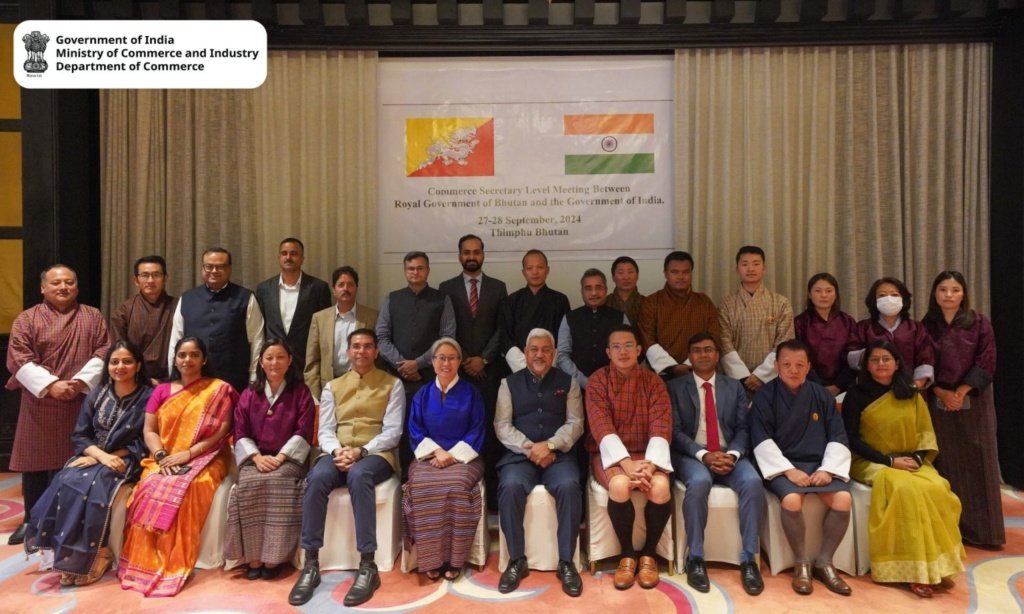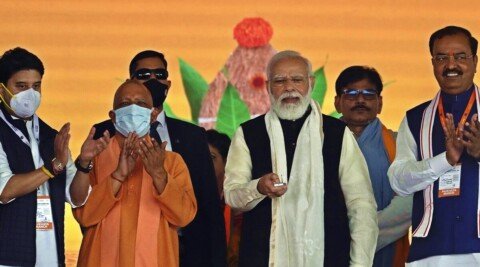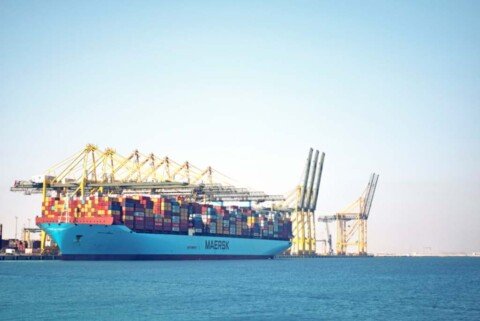In a significant development aimed at bolstering bilateral trade and cross-border connectivity, India and Bhutan are set to establish an integrated check post at Jaigaon-Phuentsholing and develop crucial rail links between Kokrajhar-Gelephu and Banarhat-Samatse. These initiatives were discussed during the recent India-Bhutan Commerce Secretary Level Meeting (CSLM) held in Thimphu, where Indian Commerce Secretary Sunil Barthwal and Bhutan’s Secretary of the Ministry of Industry, Commerce and Employment (MoICE), Dasho Tashi Wangmo, emphasised the urgency of improving cross-border trade infrastructure.
During the CSLM, both nations explored essential strategies to enhance connectivity and deepen economic ties. A pivotal point of discussion was the expedited development of key infrastructure projects. The proposed Integrated Check Post (ICP) at Jaigaon-Phuentsholing aims to streamline customs, immigration, and trade processes, facilitating smoother operations at one of the busiest border crossings. Moreover, the establishment of rail links between Kokrajhar-Gelephu and Banarhat-Samtse is expected to improve trade routes significantly, further connecting the two countries.
To augment bilateral trade, India and Bhutan identified several new trade routes and entry points. Among these are the notification of Land Customs Stations (LCS) at Hatisar and Darranga, which will serve as additional routes for importing areca nut from Bhutan. LCS Darranga will also be designated as a new entry point for food imports, streamlining the flow of essential goods. Additionally, the countries agreed to notify LCS Samrang post-infrastructure upgrades, further promoting cross-border trade. India also expressed its willingness to consider importing scrap from Bhutan via the LCS at Jaigaon, underscoring a commitment to sustainable trade practices.
During the discussions, both parties reaffirmed their dedication to ensuring the uninterrupted flow of essential commodities, including potatoes, wheat, sugar, non-basmati rice, fertilizers, and coal. They also looked into the possibility of importing boulders and various timber species from Bhutan to diversify their trade portfolio. A notable outcome was the agreement to finalise terms between Bhutan’s National Seed Centre and India’s Brahmaputra Valley Fertilizer Corporation for fertilizer supply, reinforcing sustainable agricultural practices. Additionally, the countries acknowledged a recent memorandum of understanding (MoU) concerning the supply of petroleum, oil, and lubricants (POL) from India to Bhutan.
Progress was also made in regulatory cooperation, particularly in food safety and trade. The imminent operationalisation of the agreement between the Bhutan Food and Drug Authority (BFDA) and India’s Food Safety and Standards Authority of India (FSSAI), signed in March 2024, will enhance the trade of food products by acknowledging each other’s safety controls. Furthermore, personnel from Phyto Quarantine Inspection Services (PQIS) will be stationed at LCS Darranga to bolster biosecurity measures, ensuring the safe exchange of agricultural products. The CSLM additionally highlighted the establishment of border haats to promote grassroots-level trade along the India-Bhutan border, with discussions centered on facilitating the movement of businesspersons and simplifying cross-border travel for trade professionals, thereby fostering a more robust economic partnership between the two nations.







